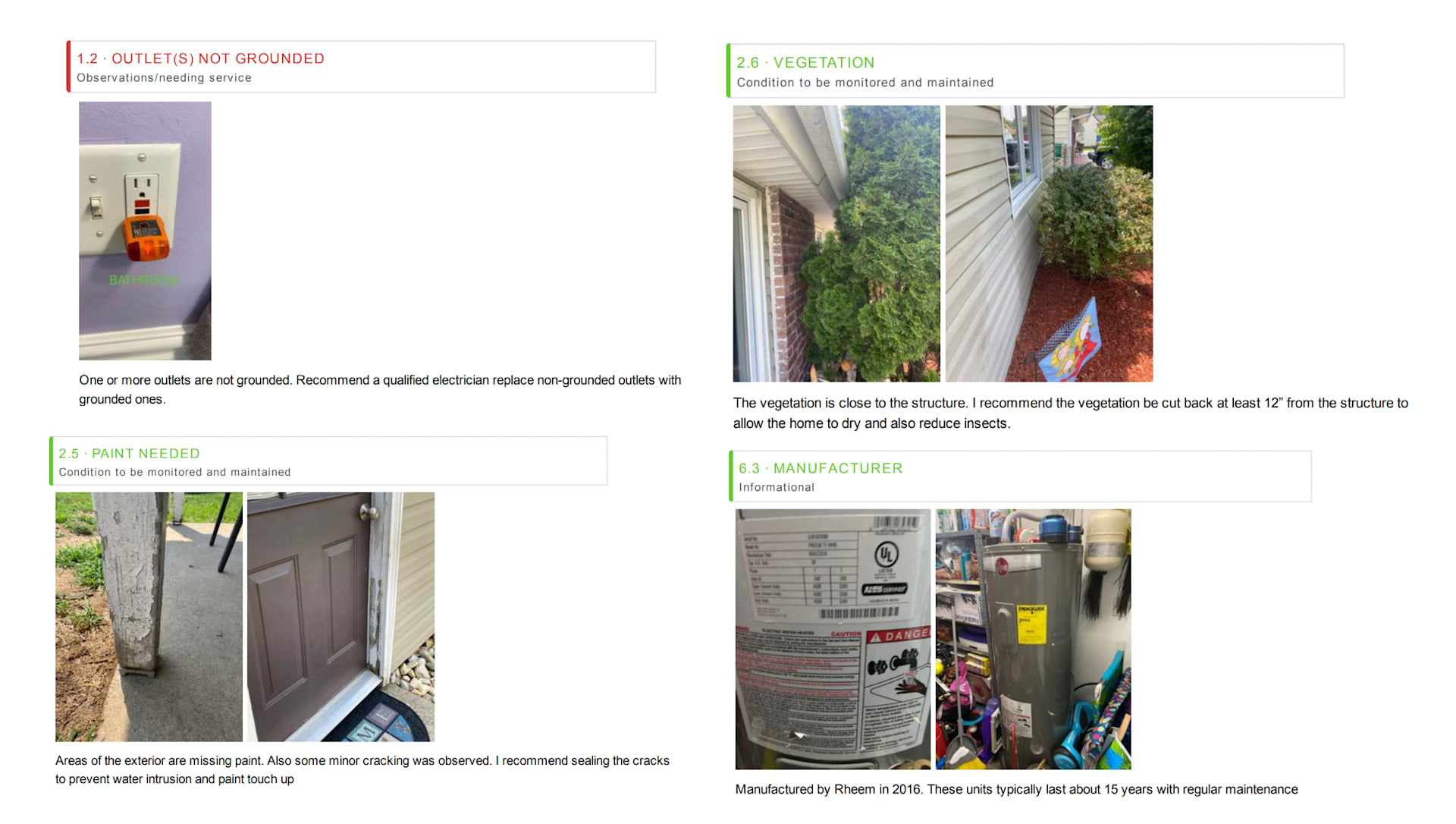If you’re wondering, if a home inspection is worth my time and money, you’re in the right place.
Whether it’s your first time or you’re a seasoned veteran, there is one thing that remains constant: you need to be sure that the house you are buying is safe. The last thing you want to do is buy a home with issues that could cost you
thousands of dollars in repairs or renovations.
That’s where home inspections come in!
Average cost: $300-$800
If you’re not familiar with the concept, a home inspection is an evaluation of the overall condition of the property you intend to buy. It’s intended to help you make an informed decision about whether or not this house is right for you—and if it isn’t.
The report isn’t designed to be a “checklist” of things that need repair or general maintenance; rather, it’s meant to identify material defects or deficiencies that would have a negative impact on the value of the property, or that involve an unreasonable risk to people on the property.
Here are common items inspectors look at when conducting a home inspection
Electrical: Inspectors will check to see if the electrical system is up to code and in good working order. They’ll also look for things like exposed wires, improper fuses and switches, and damaged outlets and cords.
Plumbing: Inspectors will look at the water supply line, drains and overflow pipes, toilets, faucets, showers/tubs, and sinks. They’ll check to make sure everything is in proper working order and that there aren’t any leaks or other issues with the plumbing
Roof: Inspectors will check the condition of your roofing material (shingles) as well as its age (how long ago it’s been installed). They’ll also take note of any damage such as missing shingles or holes in your roof that could lead to leaking or other problems down the road.
HVAC system: Inspectors will look at how old your heating system is as well as its size relative to your home’s square footage. They will be able to give you an exact year the HVAC system was put into the home, to give you a better idea of how soon you’ll be expected to replace it. They’ll also take note of whether or not parts are missing or damaged so you can plan ahead for replacements.
Interior damage: Inspectors also look for signs of damage in your home, such as doors or windows that are damaged or not working properly, floors that need to be replaced, or cracks in walls or ceilings. Inspectors will also check out fireplaces and chimneys to make sure they’re safe and functional.
What to look for in a home inspection report
Inspection reports are written by the inspector, who is hired by the buyer to help them make an informed decision about whether or not to proceed with the purchase of a home.
They are comprehensive and often include photos. They may also include recommendations for repair work that needs to be done before the final sale. In your report, draw your attention to the items in red.
Unless there are significant problems with safety or health issues in the home making it inhabitable, an inspection can never legally prevent the seller from being able to sell their home to a buyer who is willing to take it as is.
The inspector found defects – what’s next?
Sellers, if you conducted an inspection on your home prior to listing it and your results are worse than you expected, you might have some tough decisions ahead of you.
If your home is in need of repairs, you can put it back on the market and hope that buyers will be willing to overlook the problems. But if you’re not sure whether or not a buyer would be willing to overlook some of the issues, or if there’s something particularly serious that could cause structural damage or make living in the home difficult, then it’s possible that you’ll need to consider moving forward with repairs before putting it on the market again.
If you don’t want to offer credit for repairs, pay to have the work done, or fix the issues yourself, you will most likely lose an interested buyer and have to go back to market. This means you can put your home back on the market, but you should know – the fact that it was once under contract will be a red flag to potential buyers.
When you put your home back on the market after it has been under contract, you will have to disclose that fact to potential buyers in the seller’s disclosure. While this is unlikely to affect your ability to sell the home, it does mean that you will have to disclose the defects found in the inspection report and possibly explain why you didn’t go through with repairs the first time.
So If you’re looking to buy or sell a home, a home inspection is an important step in the process that can help you avoid costly mistakes. The inspection will give you the opportunity to see the condition of your potential purchase so you can make an informed decision about whether or not to move forward with the transaction. As a seller, it’s also important to have your home inspected as part of pre-sale preparation so you can be prepared for what needs attention and how much money it might take to fix things up before selling.












